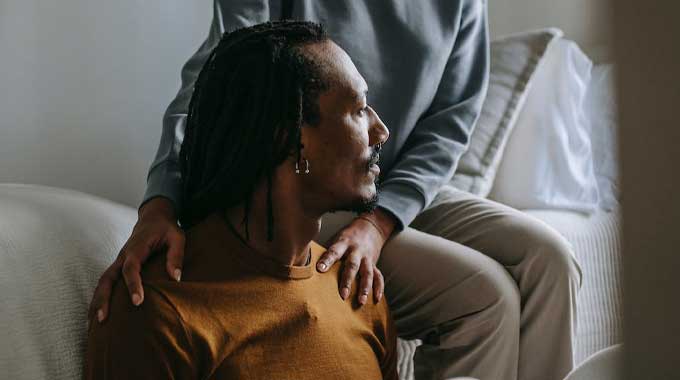Alcohol is everywhere and is often a part of many people’s daily lives. It is used to toast celebrations and drown sorrows in commiserations. Even drinking alcohol to the point of a hangover is socially acceptable. Most people consume alcohol on occasion without long-term adverse effects. But alcohol is an addictive substance that can have devastating consequences.
Alcoholism is also known as alcohol dependence or alcohol addiction. It is an uncontrollable urge to drink alcohol that sadly harms millions of people across the country. When an alcohol addiction develops, the sufferer builds up a tolerance and, over time, will require larger volumes to experience the same effects as before.
We all have an idea of what someone with an alcohol dependency might look like. It’s usually an unflattering image of someone whose mind, health, and life have completely fallen apart. However, the truth is that anyone can develop an alcohol addiction. Many people hide their problems well in plain sight. You might even know someone with a drinking problem without realizing it.
If you are reading this, you might be wondering if you have a problem with alcohol. Maybe someone close to you has approached you about your relationship with alcohol, or perhaps you’ve noticed some changes in yourself. To help you, here are three signs your drinking is out of control.
1. Lying About Your Alcohol Intake
Have you started lying to loved ones, colleagues, or yourself about how much alcohol you consume? Do you find yourself hiding how much alcohol you drink throughout the week?
Lying about how much or how often you drink alcohol suggests that you feel internal shame about it. Ask yourself why that is. Is it because you are making poor choices due to your alcohol intake? Is your drinking damaging your health, work-life, social life, or finances? Or, are you lying because you find you cannot stop even though you know you should?
If you said yes to any of the above questions, this could be a sign that your drinking is out of control.
2. Drinking Alone
Drinking alcohol is often a part of socializing at a bar with friends or a dinner party. However, you may have lost control if you find yourself drinking alone. This is especially true when a ‘nightcap’ is all night, every night.
If you are drinking alone a lot lately, ask yourself why. Some people drink to self-medicate chronic pain or mental health issues. Though you may think doing so is not harmful, drinking to mask pain or emotions is not a long-term solution and will only end badly.
Studies show that misusing alcohol to self-medicate leads to addiction. Instead of turning to alcohol, medical treatment and therapy are better outlets for your problems.
3. Your Relationship With Alcohol Is Negatively Impacting Daily Life
The biggest sign that your drinking is out of control is if it is getting in the way of your usual activities.
Do you find yourself canceling social events, appointments, or work commitments due to drinking or a hangover? Have you found that your behavior when under the influence of alcohol ruins your relationships with colleagues or loved ones? Is it affecting your performance at work? Have your finances taken a hit due to your alcohol habit?
Ask yourself these questions, and answer them honestly. If you say yes to just one of them, seeking professional help may be in your best interest.
Return to the homepage: Orange County Rehabs
Signs of Alcohol Addiction
In addition to reviewing the three signs noted above, you may find yourself subject to several signs and symptoms if your drinking is out of control. These may include:
- Mood changes
- Irritability
- Memory impairment
- Denial/lying about the amount of frequency/volume of alcohol consumed
- Risky behavior, for example, drink driving and shoplifting
- Craving alcohol
If you recognize that you have lost control of your drinking, the first step is to acknowledge this and take action. Do not detox from alcohol addiction alone, as withdrawal symptoms can be dangerous and fatal. Help is available to take back control of your life and beat alcoholism.






